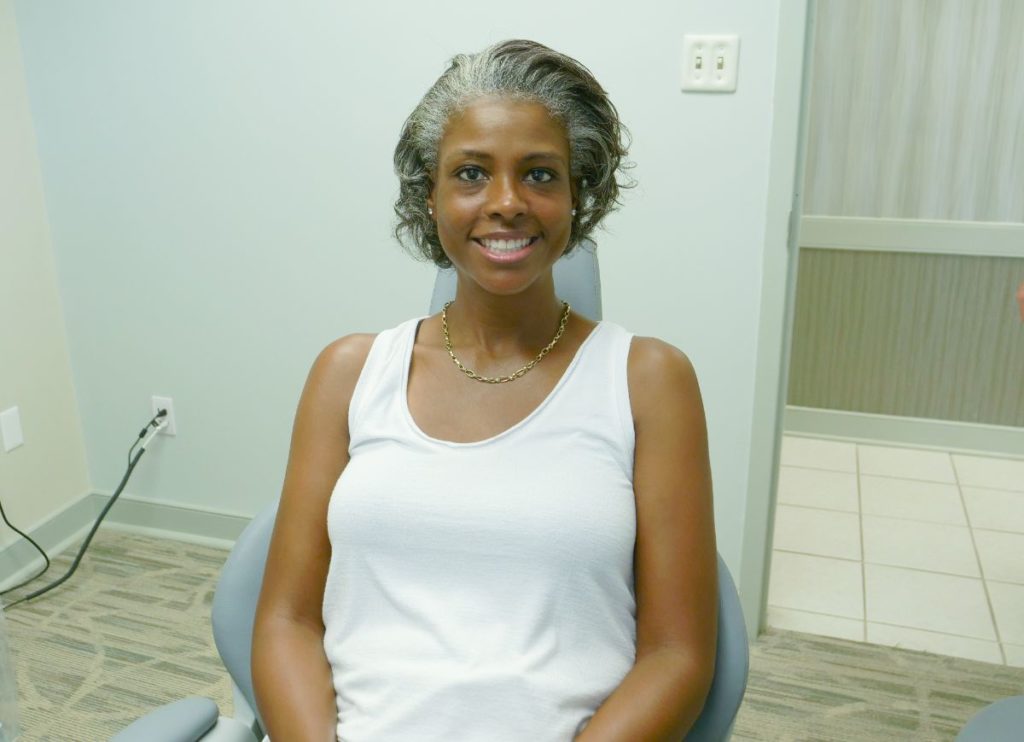Everyone knows that sleep plays an important role in our everyday lives. What most probably don’t know is that orthodontics actually has the ability to affect your sleep quality. If you’re having trouble sleeping as a result of things like teeth grinding, loud snoring, or sleep apnea, it’s possible that orthodontic treatment can help you get a much better night’s sleep. At Hamer & Glassick Orthodontics, we believe everyone should be able to get quality orthodontic care and a beautiful smile. Ensuring a healthy and consistent sleeping schedule is crucial to this. To start, we’ll go over the effects of Sleep Apnea, TMJ and how each is a related factor in the betterment of your overall oral healthcare.
Sleep Apnea
Sleep apnea affects a person’s sleep cycle. People with sleep apnea stop and start breathing while they’re asleep. Because of the inconsistency, the level of your sleep apnea can be dangerous depending on the symptoms.
There are 3 types of sleep apnea. The main types of sleep apnea are:
- Obstructive sleep apnea, the more common form that occurs when throat muscles relax
- Central sleep apnea occurs when your brain doesn’t send proper signals to the muscles that control breathing
- Complex sleep apnea syndrome, also known as treatment-emergent central sleep apnea, occurs when someone has both obstructive sleep apnea and central sleep apnea
As stated, sleep apnea can be potentially disruptive or even dangerous, depending on the severity of your symptoms. Some of these symptoms include:
- Loud snoring
- Awakening with a dry mouth
- Morning headache
- Difficulty staying asleep (insomnia)
- Excessive daytime sleepiness (hypersomnia)
While there are many reasons for disruptive sleep patterns, there are certain factors that can increase the level of disruption in your sleeping patterns. A person’s lifestyle has a major impact on the level of conditions. Factors such as weight, gender, age, family history, use of alcohol, and smoking can all contribute to the severity of your conditions. It’s always good to consider changing lifestyle habits before consulting an orthodontic specialist if you think you have sleep apnea.

TMJ Disorder
TMJ disorder is a condition where patients feel pain in the joints and muscles that control jaw movement.
While you sleep, your mouth and jaw muscles will naturally start to relax with the rest of your body. The joints in your jaw act like sliding hinges, connecting your jawbone to your skull. Sometimes to ease discomfort from TMJ, these hinges slide back so patients will clench or grind their teeth, causing trauma to the jaw, the head, or the neck.
During sleep cycles, patients who struggle with conditions such as TMJ (or TMD) may experience sleep disruptions due to the constant pain and discomfort experienced while sleeping.
TMJ Symptoms
TMJ is tricky to track because there can be multiple reasons a patient feels pain in their jaw. Generally, symptoms of TMJ can include:
- Pain or tenderness of your jaw
- Pain in one or both of the temporomandibular joints
- Aching pain in and around your ear
- Difficulty chewing or pain while chewing
- Aching facial pain
- Locking of the joint, making it difficult to open or close your mouth
TMJ disorders are also notable for creating a clicking sound or grating sensation when you open your mouth or chew. If a patient doesn’t feel pain or movement limits associated with jaw clicking, you probably don’t need treatment for a TMJ disorder.
In most cases, the pain and discomfort associated with TMJ disorders are temporary and can be relieved with self-managed care or nonsurgical treatments.
Orthodontist Solutions
Some cases of TMJ are more serious than others, so it’s important to consult your orthodontist for proper diagnosis and treatment. If you find that you suffer from TMJ conditions, there are several ways your orthodontist may be able to help. If sleep apnea is generally a structural issue, patients may find relief by slightly altering the jaw position. This can be done through adjustment in sleeping habits. Orthodontists can also adjust the patient’s lower jaw to remain in the ideal position while sleeping. This process is completed with special appliances, or in some cases, with orthodontic treatment, including braces/aligners and elastics that shift the bottom jaw forward. Surgery is typically a last resort after conservative measures have failed, but some people with TMJ disorders may benefit from surgical treatments.
Palate Expanders
Another option for treatment is through palate expanders. A palate expander is a device placed on the roof of the mouth and used to widen the upper jaw. This appliance is typically used as a treatment for children since their mouths and palate are still not fully formed and can easily be manipulated. Frequently, when a child’s mouth does not appear wide enough to accommodate the adult teeth, this RPE can be used with braces to provide spacing support for those teeth to come in correctly. This palate expander creates space allowing better airflow through the mouth, helping ease or even prevent sleep apnea. Dr. Hamer and Dr. Glassick use custom palatal expanders made from a digital scan of your upper jaw and teeth. This allows your orthodontist to have a better understanding of your personal needs in order to have the most precise tools and ensure the best treatment.

Get your best sleep with Hamer & Glassick Orthodontics
When it comes to treatment, your sleeping routine is essential. Our offices are here to help you get the information you need in order to achieve your best smile. Our experienced orthodontists have the education, skills, and training to give you a great orthodontic experience with long-lasting results you’ll love. There’s never been a better time to take the first step towards improved oral health, so get in touch today to schedule your free consultation with Dr. Glassick or Dr. Hamer!
